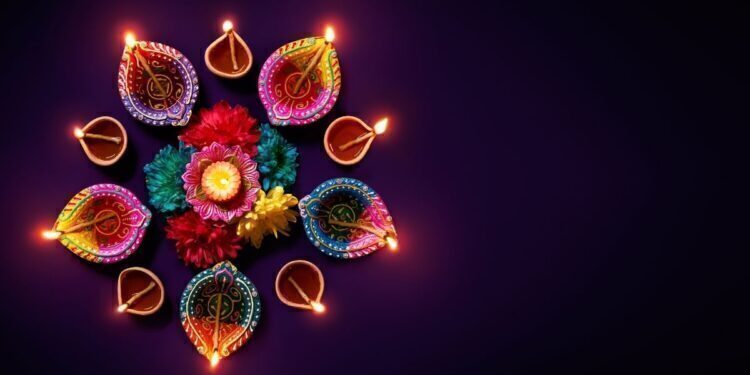The holiday season is here, and, for most of us, that means we are preparing for Christmas, and shortly after, a brand new year. While the majority of U.S. citizens celebrate Christmas, there are many who celebrate other holidays, too. The United States is made up of people of many different races, belief systems, and cultural backgrounds, and each has a unique outlook on the world. The United States military itself is an extension of that cultural “melting pot” that is the United States. That means that not only do they have their own traditions, but they have their own holidays, too!
Here are four winter holidays, other than Christmas, that are celebrated during this time of year by military families:
1: Hanukkah
The Jewish holiday of Hanukkah celebrates the victory of the Maccabees over the Syrian army, as well as how just a day’s supply of oil allowed the menorah in the Temple of Jerusalem to remain lit for eight days. Over eight days, a menorah, a candleholder that holds nine candles, is lit. The first candle that is lit is on the right on the first night, and the remaining candles are lit from left to right on the remaining seven nights. The holiday is celebrated in late November or December, depending upon when the 25th day of Kislev on the Hebrew calendar falls on the Gregorian (or, the regular) calendar. Festivities include singing, playing games with the dreidel (a traditional Jewish spinning top toy), and eating traditional foods, such as latkes and dairy foods. As of 2017, less than ⅓ of one percent of the U.S. military population identifies as Jewish (though this number could be higher).
2: Kwanzaa
Kwanzaa is an African-American cultural holiday celebrated from December 26th-January 1. Kwanzaa derives its name from the Swahili phrase “ya kwanza” meaning “first fruits.” The holiday was created in 1966 during the aftermath of the Watts riots by Maulana Karenga and is based on various cultural traditions from primarily West and Southeast Africa. Kwanzaa celebrates seven principles of Nguzo Saba, or the seven principles of African-American heritage. These principles are Umoja (unity), Kujichagulia (self-determination), Ujima (collective responsibility), Ujamaa (cooperative economics), Nia (purpose), Kuumba (creativity), and Imani (faith). Houses are decorated with African works of art and symbols, such as candles and the black, red, and green flag, and celebrations include traditional food, music, and dance. Kwanzaa is usually celebrated in addition to Christmas.
3: Yule/Winter Solstice
Today, Yule is a culmination of pagan winter traditions that celebrate the return of the sun, which signifies the coming of spring. Historically, Yule was observed by Germanic and Norse peoples, (also called jul), and was considered the original celebration of “Christmas,” until it was reformed by Christians to signify the birth of the Messiah, Jesus Christ. Yule was originally associated with the Wild Hunt, the god Odin, and the Anglo-Saxon holiday Modranicht, or “Night of the Mothers.” Many present-day traditions celebrated at Christmas, such as the Yule Log, the Christmas tree, garlands, and even caroling all originated in traditional pagan Yule celebrations. Yule is celebrated much like the Christmas we know – there is a feast, caroling (also knows as wassailing), and gift giving. The only real exceptions are the belief systems attached and the decorations. Yule decorations are more “natural” and consist of things gathered in nature, such as pine, acorns, cranberries, and even garlands made of oranges and cinnamon, and candles. It is estimated that around 1% of the U.S. military identifies as Wiccan/neopagan.
4: Diwali
Diwali is known as the Hindu New Year, and its name is derived from the Sanskrit language, meaning “row of lights.” It represents light over darkness, good over evil, and knowledge over ignorance. It is a five-day festival that celebrates the return of Prince Rama of Ayodhya, his wife Sita, and brother Lakshman after 14 years of exile (although the reason for Diwali varies by region, this is the most common celebration). The festival is also associated with Lakshmi, the Hindu goddess of prosperity. Many families light diyas, or candles in their homes and celebrate with food, music, gift exchanges, and honoring their gods and goddesses each day. Diwali falls sometime between October and November, and dates vary year by year. Diwali is celebrated by Hindus, Jains, Sikhs, and even Buddhists. Although the exact number of military members who are Hindu is not known, Captain Pratima Dharm became the first Hindu army chaplain in 2011.
We hope that no matter what you celebrate, that you and your family have a safe, wonderful, and blessed holiday season!








